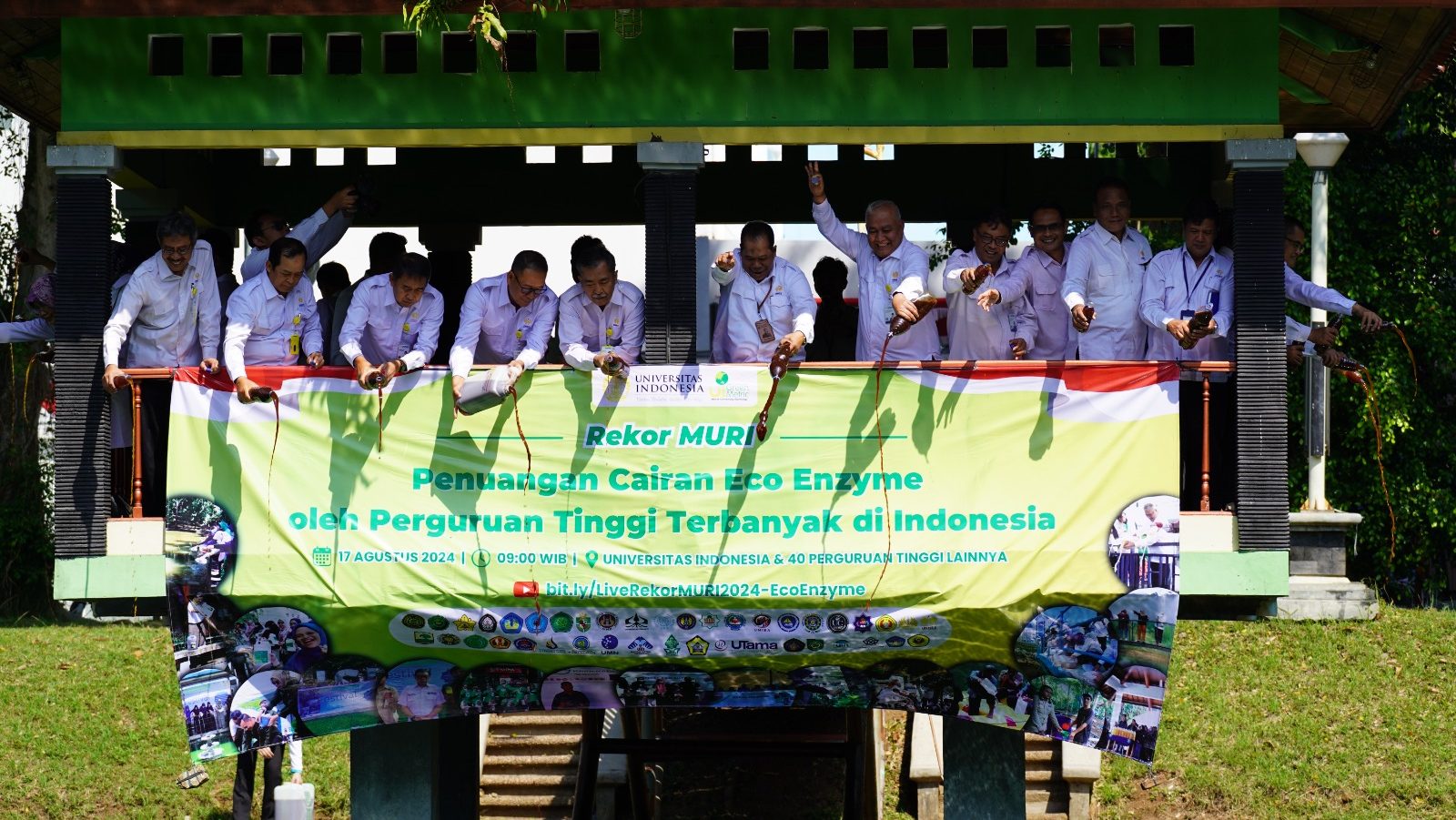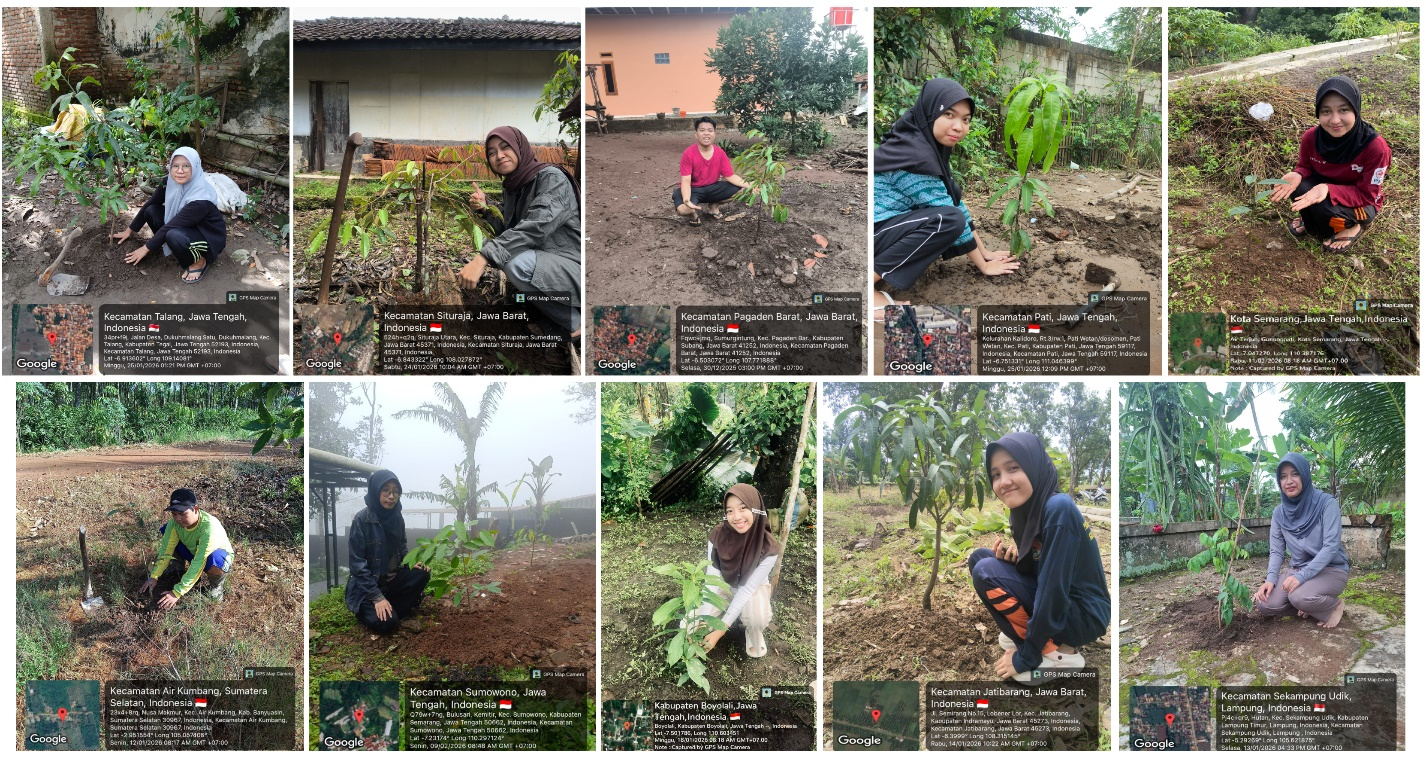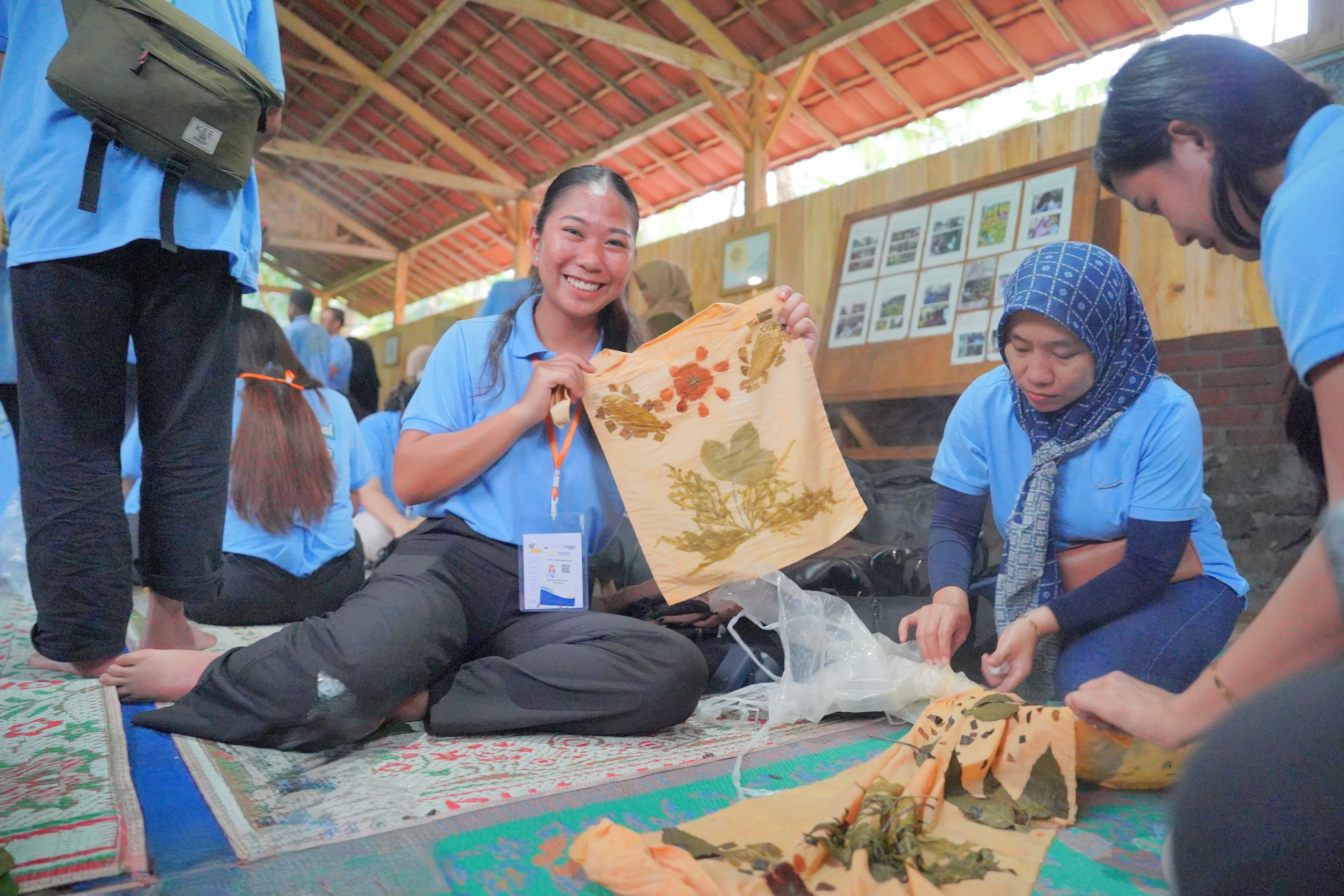The commitment of Universitas Negeri Semarang (UNNES) as a conservation-oriented university was again proven by its participation in a joint action initiated by UI GreenMetric. The activity recorded in the Muri Record entitled “Pouring of Eco Enzyme Liquid by the Most Universities in Indonesia” is one of the activities included in the 2024 Eco Enzyme Festival.
This activity was held to coincide with the commemoration of the 79th Anniversary of the Republic of Indonesia on August 17, 2024 with 46 universities participating in it. More than 20,928 liters of environmentally friendly enzymes were dumped into lakes and rivers in their respective campus areas as a joint commitment of Indonesian universities to preserving the environment and improving the quality of the surrounding water.
In this activity, UNNES produced and poured a total of 1,350 liters of eco enzyme into the UNNES reservoir. Eco enzyme is a liquid made from fermented organic waste such as fruit and vegetable peels. Eco enzyme comes from various units with details of 1,000 liters from the faculty and postgraduate school units, 350 liters from LP2, LP3, BOAB, DSIH, Archives, Library and Conservation which each contributed 50 liters.
The pouring of eco enzyme in the UNNES Reservoir was attended by the Chancellor, Vice Chancellors, Directors of Directorates, Heads of Offices, Deans of Faculties, Directors of Postgraduate Schools, Heads of Institutions, and Head of Conservation.
Eco enzyme produced by UNNES is not only useful as a natural filter to improve water quality but can also be used as an alternative to carbolic acid, a natural disinfectant and pesticide for plants. Therefore, the use of eco-enzyme can reduce the release of toxic chemicals that can pollute the environment, in line with point 14 of the Sustainable Development Goals (SDGs) which focuses on the conservation of underwater and marine ecosystems.
Dr. Junaidi, Plh. The Head of UI GreenMetric emphasized that activities like this are not only important in maintaining water quality but also play a role in supporting the environmental carrying capacity in the surrounding area, such as minimizing the risk of flooding and ensuring water supply during the dry season. He also hopes that the pouring of this enzyme can be done repeatedly to provide a sustainable impact.
UNNES Chancellor, Prof. S. Martono emphasized that UNNES’ participation in this activity is real evidence of the university’s commitment to protecting the environment, strengthening the character and understanding of students, lecturers and the community around the campus about the importance of protecting the environment.
“UNNES will continue to be committed by participating in activities that support environmental sustainability and ecosystem welfare, especially those related to water resource conservation,” added Prof. Martono.
With this contribution, UNNES hopes to be an example for other universities in efforts to protect the environment and show that every small step can have a big impact on the sustainability of the wider ecosystem.




